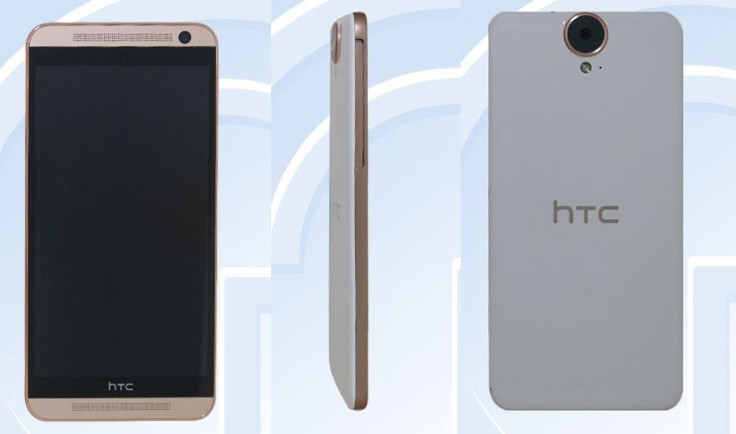HTC One E9 to sport 5.5in WQHD screen, octa-core MediaTek processor, 3GB RAM and 20MP camera

On 2 March, 2014, HTC unveiled the One M9 smartphone at MWC, which is expected to hit stores in the UK on 31 March. But, this is not the only One series high-end smartphone for 2015, as rumours are doing the rounds that another large-screen smartphone, the One E9 will succeed the current One E8.
A couple of photos depicting HTC One E9 along with specifications have surfaced on TENAA, the Chinese telecommunications equipment certification centre.
Meanwhile, notorious Twitter leakstar, Upleaks has put out major details about the hardware features of One E9 (A55), according to which the device will sport a bigger 5.5in screen with WQHD (2560 x 1440) resolution, in contrast to One M9's 1080p display. It will pack a MediaTek MT6795 octa-core processor with 64 bit support (but not the Snapdragon 810 processor), clocked at 2.0GHz, and paired with 3GB RAM.
There will be a 20 megapixel rear-camera and a 13 megapixel front-camera for the standard One E9 version. It will run Android Lollipop OS with Desire Sense 7.0. The high-end version will have a 4 megapixel UltraPixel front-facing camera.
Other key features of the smartphone include 32GB storage, BoomSound and Bluetooth 4.1. The device will offer three colour options such as White Rose Gold, Metallic Gray and Brown Gold. The smartphone, according to Upleaks, is expected to be released by the end of March 2015.
It remains unclear whether One E9 will be released worldwide, as the One E8 was a Sprint-bound model available only in the US.
During the Mobile World Congress convention Jason Mackenzie, President, HTC Americas, in an interview with Business Insider, revealed that the company's upcoming announcement will show how different their phone is compared to Samsung phones and iPhones. However, there is no official word about the product that is likely in the event.
"When I look at the flagship [the M9], I see we're building most premium devices. But I can't stop there. We have a huge announcement in middle to late March around extreme differentiation between Samsung and the iPhone. It solves the key pain points," said Mackenzie.
[Source: Engadget]
© Copyright IBTimes 2025. All rights reserved.





















